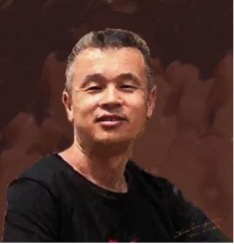China: Free the Beijing Bridge Protestor Peng Lifa from Secret Detention
October 12, 2023 Comments Off on China: Free the Beijing Bridge Protestor Peng Lifa from Secret Detention
One year ago, on October 13, 2022, police dragged away Peng Lifa from the Sitong Bridge in Beijing, where he staged a solo protest, peacefully expressing his dissent about the government’s COVID lockdown and the anti-democratic rule of General Secretary of the Chinese Communist Party Xi Jinping.
Peng has since vanished into police custody with his whereabouts and the nature of his detention completely unknown. There are reports indicating that some of Peng’s family members may be under house arrest.
CHRD is concerned that police in Beijing have subjected Peng Lifa to enforced disappearance where torture is often likely used to extract confessions. CHRD calls on the government to immediately release Peng Lifa, and pending that release, allow him to hire a lawyer of his choice and protect his other due process rights.
On October 13, 2022, Peng Lifa (online name Peng Zaizhou) hung two large banners on the Sitong Bridge, which read:
“We want food, not COVID testing; We want reform, not the Cultural Revolution; We want freedom, not lockdowns; We want to vote, not a leader; We want dignity not lies; we are citizens not slaves.”
Another banner nearby read, “Depose the traitorous dictator Xi Jinping.”
From a loudspeaker, he recited what he wrote on the banners.
Dozens of policemen quickly arrived at the scene, wrestled Mr. Peng into a police vehicle and took him away.
Comments and images of the protest spread widely on the internet inside and outside China; domestically they were quickly censored.
Peng Lifa’s protest inspired many people in China and around the world. In November, thousands took to the streets in 31 cities across China to demand the dismantling of the government’s draconian Zero-COVID control measures. They also called for freedom and democracy.
This wave of protests subsequently became known as the “Blank Paper” Movement, and it may have contributed to a swift end to China’s Zero-COVID regime.
Peng Lifa’s Situation One Year On
On the anniversary of Peng Lifa’s detention, his current whereabouts, wellbeing, and charges against him remain unknown.
According to a report published by Civil & Livelihood Watch, a Chinese human rights news source, a human rights defender, Zhang Yuhong, on August 18 attempted to travel to Peng Lifa’s hometown in Heilongjiang province. She was trying to visit Peng family members to ascertain Peng’s current whereabouts or legal status.
Once Zhang had entered Peng’s hometown of Ningjiang Township in Tailai County, a man in plainclothes, who refused to identify himself, blocked the road and said he was there to monitor passersby. Later, according to photos circulated online of the incident, six other men showed up to prevent Zhang from entering the village, one of whom identified himself as a police officer named Bian Zhipeng of the Tailai County PSB (Police ID: 03060).
The police officer told Zhang, “We are engaged in a special police operation that is a state secret and we need to inspect all vehicles traveling from outside the area.”
Zhang Yuhong was taken into the Ningjiang Police Station by these men, and she then became unreachable by phone or internet. After numerous urgent calls to the police station and complaints from her supporters online, Zhang was released after spending more than 24 hours in custody, and she subsequently left the area.
Similarly, according to a October 12 report by VOA, Peng Lifa’s wife and two daughters have been put under house arrest in Beijing. When they leave their home, whether going to work or school, they are forced to travel in vehicles provided by the authorities and they are always accompanied and surveilled by police. They have had their personal phones confiscated, and they are only able to use phones provided by the authorities.
With the outside world unable to contact Peng Lifa’s family, it is unclear whether Peng Lifa’s family have been notified about any criminal charges applied to Peng. If these unconfirmed reports are accurate, it is possible that authorities are preventing Peng Lifa’s family from contacting a lawyer of their choice, as happens in similar cases of political dissidents.
Under international law, everyone deprived of their liberty or facing a possible criminal charge has the right to the assistance of a lawyer to protect their rights.
According to the UN, an enforced disappearance occurs when, “persons are arrested, detained or abducted against their will or otherwise deprived of their liberty by officials of different branches or levels of Government…followed by a refusal to disclose the fate or whereabouts of the persons concerned or a refusal to acknowledge the deprivation of their liberty, which places such persons outside the protection of the law.”
In August, dozens of civil society groups signed a joint letter urging the Chinese government to end its use of enforced disappearances as a tactic to silence and punish activists, religious practitioners, Uyghurs and Tibetans, and even high-profile celebrities, entrepreneurs, and government officials. The statement urged for the release of Peng Lifa and all others who are victims of enforced disappearance.
At the time of the Blank Paper protests last year, calls for the Chinese government to respect the right to freedom of expression and the right to peaceful protest were echoed by world leaders like Canadian Prime Minister Justin Trudeau and government officials from the US, Germany, the UK, the UN, and Members of the European Parliament.
In January, China will come under international scrutiny again at the Universal Periodic Review, a process in which each UN Member State undergoes a peer review of its human rights record.
“UN member states should stand up for Peng Lifa and urge the Chinese government to immediately end its enforced disappearance of Peng and respect the right to freedom of expression,” said Renee Xia, CHRD’s Director.
